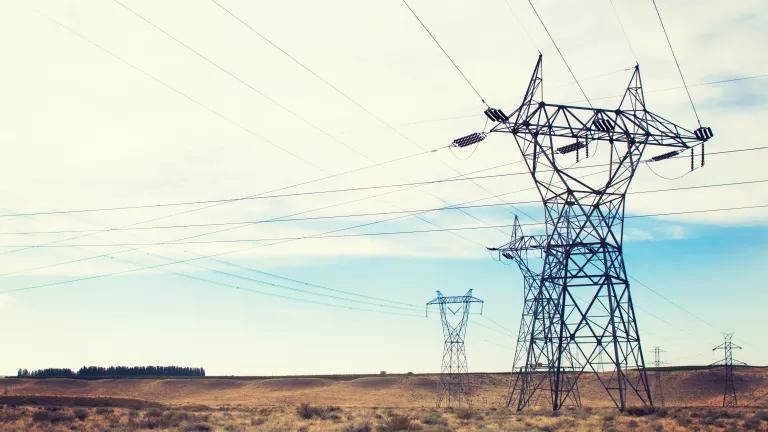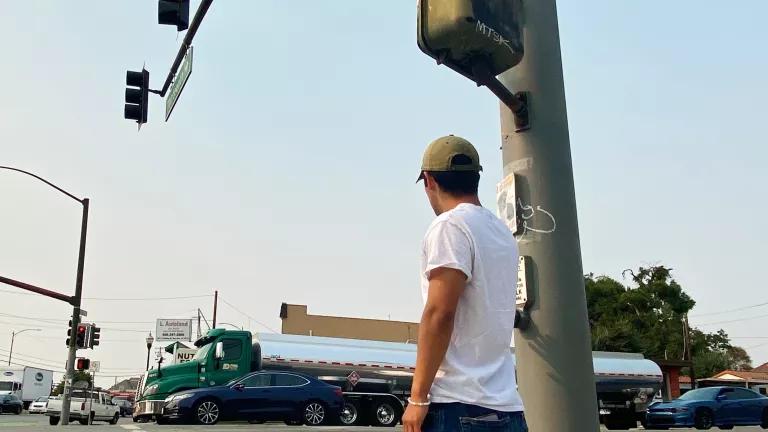Newest GOP Infrastructure Plan: A Fantasy without Funding
With no action on President Trump’s promise to rebuild America’s infrastructure, a House Republican has floated a plan that seems to recognize crippling problems in transportation and other areas but trades present-day quick fixes for long-term solutions.
The draft proposal by Bill Shuster, chair of the House Transportation and Infrastructure Committee, suggests a dramatic shift in how we fund surface transportation infrastructure – funded by first raising gas taxes and then eliminating them altogether.
It is true that the Highway Trust Fund is on its way to insolvency, and we need a dramatic, innovative and sustainable solution to build modern transportation system that will support economic growth and prosperity. Unfortunately, this proposal is not it.
Shuster leaves the hard work of figuring out long-term solutions – once the gas tax is gone – to, drum roll please, a commission. This commission, which would have 11 Republican and four Democratic appointees, is supposed to provide the alternative funding mechanism, or the “fix”, for the Highway Trust Fund, identifying and structuring a new funding mechanism by 2021 – no real limitations or parameters and no vision for the future.
The only push is to consider a Vehicle Miles Traveled (VMT) fee system, with no additional guidance on what that system should accomplish or how.
The key question here is why can’t Congress do its job and address the issue instead of punting its authority?
Taking Responsibility
Congress should use this opportunity to define our infrastructure future for the sake of our country and its children. The “fix” should address the needs of a modern transportation system, not just a way to maintain the 1960s-era system we have inherited. That means including options for cities to implement congestion pricing, accounting for equity considerations for rural and low-income road users who may shoulder an unfair burden of a road user fee, accounting for a changing climate, and adequately funding all modes of transportation, especially transit and active transportation choices.
Instead, this proposal is narrow and ultimately keeps transportation siloed instead of requiring a solution that incorporates the needs of a community, including health, economic development, and air quality improvements. We would suggest following NRDC’s roadmap to a low-carbon transportation system.
Gas Tax Sleight of Hand
Shuster’s proposal sees the gas tax as an inadequate primary funding mechanism for surface transportation, which is true, at least partly because the more efficient vehicles become, the more revenues decrease. Decoupling transportation funding from the gas tax could be beneficial – but only if the true cost of carbon emissions is accounted for elsewhere. If an economy-wide carbon tax were politically viable, it would account for tailpipe emissions and open the door to eliminating the current version of the gas tax. That’s unlikely, which means the “fix” needs to include, not eliminate a gas tax, with a price that aligns with carbon emission impacts.
Ironically, Shuster’s plan does raise the gas tax – but only until Sept. 30, 2028. It calls for raising taxes on gasoline and diesel fuel by 15 cents per gallon and 20 centers per gallon over three years, and then indexes the tax with inflation. Then, the funding source disappears – poof – with the task of finding funding left to the commission.
Other Non-Starters
Shuster’s plan does include new taxes on all low carbon transportation options. This includes a 4.3 cent per gallon tax on diesel fuel for transit, a 10 percent tax on EV batteries and a new tax on bike tires. These misguided taxes would decrease incentives for transportation options that reduce congestion, lower carbon emissions, and promote healthier lifestyles. They need to be a larger part of a modern transportation system than they are today, and increasing barriers to their adoption is foolish. Furthermore, if the commission recommends a VMT-based funding mechanism and does not repeal these taxes, these modes will essentially be double taxed.
Perhaps unsurprisingly, one of Shuster’s more forthright proposals would gut environmental protections in the name of infrastructure improvement. Environmental reviews have been the scapegoat for our infrastructure problems, but study after study has shown that it’s not the time it takes to do environmental reviews that slows projects, but lack of money.
The National Environmental Policy Act is sometimes the only law that gives the public or local officials the chance to weigh in on projects that affect our lives. But this plan under the guise of “innovative practices for environmental review” includes a provision that would allow an agency Secretary to waive any requirement under any Federal law or regulation concerning the environmental review process for a project.
Another section would preempt states’ rights by limiting a state’s ability to ensure that federal agencies will not issue permits or licenses that harm waterways within the state. This section is called a “reform,” but mainly it is a giveaway to pipeline companies and builders of hydroelectric dams.
The Good Parts?
At least, Shuster’s plan recognizes that the Highway Trust Fund and our current transportation funding system is broken and it seems to understand the need for a transformational funding source, though it doesn’t include one.
It incentivizes innovative infrastructure projects through a series of discretionary grant programs and it raises the gas tax – if only temporarily. It also extends FAST Act authorization through FY 2021—that is the Funding America’s Surface Transportation Act, the funding mechanism for surface transportation infrastructure planning and investment--and repeals the rescission of $7.6 billion of federal highway funds in the FAST Act. It also authorizes increased funding for several water infrastructure programs, including doubled funds for the State Water Pollution Control Revolving Funds.
But anything positive in this proposal is outweighed by its key missing piece – lack of a funding plan -- and for that reason, at the very least, it may not gain much traction. For a member leaving Congress, this is a weak proposal that doesn’t address the basic, and vast, problems at hand.



